- Home
- Lilith Saintcrow
The Red Plague Affair: Bannon & Clare: Book Two Page 12
The Red Plague Affair: Bannon & Clare: Book Two Read online
Page 12
Mikal did not move, but a new tension invaded the air. “You shall carry whom I command you to carry. Y béo Dægscield.”
The ancient words resonated, the stable a bell’s interior, shivering. The gryphons went utterly still.
I am Shield.
Their compact with Britannia was antique, true. But their compact with the brotherhood who guarded the workers of wonders was even older, brought from other shores with the wandering conjurers of the Broken City. Mordred the Black had given shelter to that brotherhood on the Isle’s shores during the Lost Times. Mordred claimed descent from Artur’s left-hand line; none knew the truth of that claim, none cared to dispute it, either. The Collegia itself, only recently tethered above Londinium, was a wonder of Mordred’s age, its black gatestones crawling with crimson charter charms the first things laid. There was said to be a mist-shrouded mountain the Collegia had torn itself from the side of, long ago. A craggy peak whispered to have held another school where thirteen students were admitted, but only twelve left, and the last – either the best or the worst, according to which set of legends one excavated from antique dust – was taken as a toll.
“You are Sssshield.” Grudging, the black gryphon lowered its head.
Mikal’s tone softened, but only fractionally. “I would not ask, were the need not dire. Britannia requires, wingkin.”
They moved again, restlessly, as the ruling spirit’s name passed through them.
“And we ansssswer,” the chorus rose, as one.
So do I, gryphons. Emma’s throat ached, the dry stone lodged in its depths refusing to budge. So do I.
Chapter Fifteen
Much Larger Problems
A thickly painted statue of the Hooded Magdalen smiled pacifically from her knees, beaming at the wooden, writhing holy corpse nailed to the tau above the altar. Clare blinked, his sensitive nose untangling odours – wax, incense of a different type than that perfuming the letter still in his pocket, old stone and damp, the ash of breathing, beating Black Wark close by providing a dry acid tang.
The church had stood before the Wifekiller’s time, and those recalcitrant or conservative enough to remain under the command of the Papacy in matters of faith had preserved it fairly well. Well enough that Valentinelli, Neapolitan that he was, murmured a phrase in his native tongue and performed a curious crossing motion.
Clare caught Vance’s glance at the assassin, and knew the other mentath was storing away tiny bits of deduction and inference. Rather as he himself would.
He turned his attention away, examining the church’s interior. Pews of old dark wood, each with a rail attached to its back for those who chose to kneel, the tau corpse lit from underneath by a bank of dripping candles. The altar was a tangle of dying flowers on a motheaten red velvet cloth; four confession-closets stood along the west wall, empty. On a workaday Monday, the stone-and-brick pile was full only of echoes. Generations of nervous sweat and the effort of pleading with uncaring divinity had imparted its own subtle tang to the still air, warmed by candle-breath. Another bank of candles crouched within a narrow room tucked to the side, under icons both painted and sculpted.
Vance exhaled, a satisfied sound. “Where would you say, old chap?”
Clare caught the first note of unease in the other mentath’s tone. Ah. You are not as certain as you would like me to believe. “Certainly not the basement. Or the tower.” He took his time, enjoying the sensation of pieces of the puzzle fitting together with tiny, satisfying unheard snaps. Not under the altar, either. He turned, smartly, and his steps were hushed as he entered the domain of the saints. Valentinelli drifted after him, and Clare was absurdly comforted by the Neapolitan’s presence.
Vance had surprised the assassin once. Clare did not think such an event likely to occur a second time.
Paintings and small statues, the saints with their hands frozen in attitudes of blessing and the thin crescents or circles of haloes about their heads worked in gilt, stared with sad soot-laden eyes. Clare stood for a moment, thinking.
He is a genius, not a mentath. He is the prey of forces within himself he cannot compass, and they have driven him. The initial impulse came from another quarter, but he made the quest his own. Clare nodded thoughtfully, tapping his thin lips with one finger. Ludovico, well used to this motion, stilled. Vance breathed out softly, perhaps in appreciation of the symmetry of this small room, a tiny gem of proportions tucked away inside the larger church. A pearl of a room, nestled in an oyster’s knobbled shell.
“Only one possible choice,” Clare murmured.
Under the painting of Kosmas and Demian grafting a leg onto one of their hapless patients – spoons and medicine boxes worked in gilt-drenched paint, the sufferer’s mouth an elongated O of pain and the blood faded to a scab-coloured smear – was a shelflike table, its top a rack for a bank of small, cheap candles. The smoke from their tainted tallow was almost as foul as the yellow fog of Londinium’s coal-breath: a miniature cousin.
Clare sighed. It was a sound of consummation, and he twitched aside the rotting cloth skirting the table’s spindle-legs.
There, in the darkness, nestled in its hole, the canister sat. Perfect blown glass, still trembling with the breath of Alterative sorcery that had purged it of contaminants and occlusions, and the top, brasswork chased with charter symbols that winked out as he exhaled, their course run and their charge exhausted. Gears ringed the small perforated spigot at the top, each glowing with careful charm-ringed applications of neatsfoot oil.
“Ah,” Clare murmured. “I see, I see. Here, before the saints of physickers. You are a doctor, after all.”
“Not of Medicine,” Vance corrected, somewhat pedantically.
Miss Bannon would not like you at all, sir. The thought, absurd as it was, comforted him. And how irrational was it, such comfort? To be a mentath was to largely forgo comfort.
Except the older Clare became, the less willing he was to believe such a maxim.
“Not of Medicine, no. But of Biology, that great clockwork of Life itself. Morris believes in the divine hand. He is merely a fingernail-paring upon it.”
“Very poetic,” Vance sniffed. “That is the mechanism?” It was Clare’s turn to become pedantic. “It is a mechanism. One used to contaminate those who came to pray to the saints of Physickers for aid. There are nine more scattered through Londinium, and there” – he pointed at the clockwork’s bright-shining face – “there, you see, is the reason why we are too late. He set it to exhale just after Mass, when the devout would be praying to their saints. Then they go forth from the church, and carry death with them. The beast is loose.”
“Dear God.” Vance had actually paled. Clare ascertained as much with a swift glance, then returned to studying the clockwork.
To measure off time, rather as one would measure boiling an egg. Very clever. And then… yes, pressurised, and there is the release. And it comes out. Not steam, though. High temperature presumably deadens the effect.
He heard the soft thump and the sounds of struggle, but it was a predetermined outcome. Valentinelli had a matter of honour to avenge, and Clare perhaps should be grateful that the Neapolitan remembered Clare required the damn criminal taken alive.
“Bastarde,” Ludo breathed, rather as he would to a lover, as Vance’s struggles diminished. If a man could not inhale, he could not fight, and when respiration was choked off by Valentinelli’s capable, muscle-corded forearm, even the most canny criminal mentath in the history of Britannia ceased his frantic motions very soon.
“Be careful with him, my dear Italian,” Clare murmured. “I rather think I need his faculties to solve this puzzle.”
“He is a motherless whoreson,” the assassin spat, apparently unaware of the irony of such an utterance.
“That may well be.” Clare sighed and reached forward carefully, touching the smooth, cold glass of the canister with one dry fingertip. “But at the moment, we have much larger problems.”
Chapter Sixteen
The gryphon riders of the Skystream Guard were often chosen by the beasts themselves. It was not unheard of, even in these modern times, for a gryphon to descend from the sky and hover over a boy (or, very infrequently, a girl), buffeting them to the ground with wingbeats. To be plucked from a child’s life and thrust into the training to ride Britannia’s winged steeds was a shock some failed to endure.
Those who did found themselves with new names, scrubbed and shaven like a Collegia orphan, and drilled intensively before being allowed to see one of the creatures again.
Gryphons did not forgive a single mistake, and their riders had to be naturally resistant to the strange aura of lassitude that dropped over their usual prey. There was a martial practice of movement – the Shields were taught this, in addition to their other training – that allowed a rider certain advantages against even such a large, winged carnivore, and certain tricks with their traditional longcrook with its sharpened inner curve allowed them to direct the beasts.
The riders sometimes even slumbered with their charges, and there were stories of deep attachment between Guard and beast; from the gryphons they learned peculiar charter symbols that did not seem to disturb the æther but were nonetheless effective. Among the Skystream there were charioteers as well, those who could hold two or more of the beasts in check while they drew one of Britannia’s shield-sided conveyances.
A gryphon chariot was light and afforded little protection from the elements. Boudicca had not been the first vessel to ride one into battle at the head of her armies, but it was said she had been the one to design better chariots. Certainly very little in their manufacture had changed since her ill-fated reign, and a citizen of the Isle from her time – or even Golden Bess’s rule – would instantly recognise the high sides, rounded back and the queer metal-laced reins crackling with strange charter charms. Geared wheels and runners, cunningly designed to shift as the terrain made necessary or flight made unnecessary, were alive with crawling coppery light.
Mikal leapt lightly into the chariot, his hand flicking out to take the reins from the charioteer. Muscle came alive on his back as the two gryphons – both tawny with white feather ruffs, their beaks amber and their wings moving restlessly – tested his control.
Shields, made resistant to the aura of lassitude by their membership in their ancient brotherhood, could commandeer a chariot. Carefully, of course, and only if the need was dire. Of course, very few of sorcery’s children would consider such a conveyance under even the worst and most pressing circumstances.
There was no time. Rail to Dover and a ship from thence would simply not do. And the sooner Emma laid hands on the man, the sooner she could… do whatever was necessary.
“Prima,” Mikal said, his head turned to the side. The gryphons heaved, and he stiffened, wrapping the reins in his fists. They settled, grudgingly – a Shield’s strength was sufficient.
Barely, but sufficient.
The charioteer hopped down, his boots, with their curious metal appurtenances to keep them fastened to the chariot’s floor, clanking briskly. He offered his hand, and Emma stepped gingerly up. She almost fell onto Mikal as the gryphons heaved, hissing their displeasure at being bridled and their further rage that they would be bearing her.
If Eli had been there, he would have buckled her in. As it was, the dark-eyed boy with an old, white claw scar down the side of his shaven head slid the straps over her, bracing her back against the front of the chariot and snugging the oiled leather across her shoulders and hips. Mikal slid the toes of his iron-laced boots through the iron loops on the floor and tested them as he kept the gryphons contained.
The charioteer glanced at her and she nodded. Anything she said would not be heard over the angry screeching. Unlike the Skystream, Mikal wore no goggles; his eyes hooded as Emma reached out, her gloved hand settling on his boot. A simple charm sprang to life, vivid golden charter symbols crawling over his cheeks – they would keep the wind from stinging his flesh too badly, and trickles of ætheric force would slide into him, easing the strain. Had she another Shield or two, they could have shared the burden.
But she did not. And now she wondered if her penance would be the death of her, and of her remaining Shield as well.
How strange. Her cheeks were wet, though they were not flying yet. I do not believe Mikal can be killed.
What a sorcerer could not compass was a weakness. To think the unthinkable was their calling; to lose the resilience of intuition-fuelled phantasy was to begin a slow calcification that was, to any Prime, worse than death and the precursor of annihilation.
“———!” Mikal yelled, and the charioteer sprang aside lightly as a leaf. The back of the conveyance latched shut, and gears slid. The great doors before them were inching open, and late-afternoon light scored Emma’s tender eyes behind the leather and smoked glass of the goggles. The things were dreadful, but at least they kept the light at bay.
The chariot’s runners squealed as the gryphons heaved. The ascending ramp, bluestone quarried and charm-carried across the Isle long ago, bore the scars of generations of gryphon claws and the scrape of numerous chariots, its slope pointing at a filthy-fogged Londinium sky.
Emma shut her eyes. The chariot jolted, and she felt the moment Mikal slightly loosened his hold, both psychic and physical, upon the beasts.
Motion. The straps cut cruelly as the beasts lunged, runners ground against oiled stone, and the great shell-shaped doors – their outsides still bearing the scars of the Civil War and Cramwelle’s reign of terror – had barely finished creaking wide enough before the gryphons dragged their burden into the sky. The chariot’s gears and wheels spun gently in empty air, the temperature dropping so quickly Emma’s breath flashed into ice crystals before her face. Her stomach, left behind, struggled to keep up, and her fingers clamped on Mikal’s ankle.
No, I do not believe in his mortality. And yet I am afraid.
Chapter Seventeen
A Process of Discovery
“We will not be torturing him. Why do you insist on making me repeat myself?” Clare tested the knot. No room for error when it came to their guest.
“He deserve it, mentale. A finger. One little finger, for Ludo’s honour.”
“I can hear you, you know.” It was difficult to gauge Vance’s expression under the blindfold, which was more a nod to Valentinelli’s sense of propriety than an actual deterrent to Vance understanding which quarter of Londinium his captors had repaired to.
“Good.” Ludovico was unrepentant, to say the least. He laid the flat of the razor-sharpened, slightly curved dagger along Vance’s naked cheek.
A thorough search of the criminal’s clothing and person had turned up several extraordinarily interesting items. One in particular had caught Clare’s attention, and he slipped the small statue, cut from a single violently-blue gem, into a bureau drawer, deliberately making noise. There was no point in seeking to misdirect.
“You may return that to the Museum, Clare.” Vance did not move a muscle. His tone was as if he was at tea, instead of with a sharp edge pressed to his flesh. “A sign of good faith, don’t you think?”
“Ludo, fetch your instruments.” I sound weary. Well, he felt weary. There were some terrible choices to be made soon. “We will in all likelihood not need them, but best to be prepared, don’t you think?”
“Ci.” The Neapolitan was happier than Clare had ever heard him. “Do not start without me, mentale.”
“Wouldn’t dream of it.” He watched Valentinelli slink through the workroom’s door, closing it with only the ghost of a click, and untied the blindfold. “My apologies, sir. He is… overzealous.”
“But useful.” Vance opened his eyes. He examined Clare from top to toe, then his gaze passed through the workroom Miss Bannon had placed at Clare’s disposal.
Stone walls, sturdy enough to withstand all manner of experimental mishaps, showed grey and smooth, charm-brushed. One reached this room
at the bottom of a long flight of stairs, and Clare had wondered if it was Miss Bannon’s attempt to ease his mind at the incidence of such unnatural material in the walls and floor. The roof was heavy timbers, more than high enough for racks to dangle from them, hangman shapes with sharp and dull hooks Clare had not begun to fill yet.
The tables were heavy, solid pieces more likely to be found in a butcher’s shop despite their fresh-scrubbed appearance, and the racks of alembics and other experimental minutiae gracing their surfaces were sparkling new. Clare’s older glassware and materials did not look precisely shabby next to such equipment, but there was a glaring difference between the worn and the just-bought. Two capacious bureaus stood to attention, ready to receive larger items and racks. The desk, set with its back to one corner so Clare could see the door as he wrote, was a quite heavy oaken roll-top, with enough pigeon- and cubbyholes to satisfy the most magpie of mentaths.
“Very useful,” Clare agreed. Whatever deductions Vance would make from the state of the workroom, he was welcome to them. “My hope is that you will prove likewise useful.”
“If not, the Neapolitan prince is allowed to exercise upon me? Bad sport, old man.” Vance’s grin was untroubled. His eyes were now a cheerful hazel, and his moustache twitched slightly as he passed his gaze over the room’s interior again.
“Almost as bad a sport as poisoning a decoy.” Clare folded his arms, leaning one hip against the closest table, and examined his guest in return. He very carefully did not touch his pocket. “Or financing the lamentably missing Mr Morris.”
“I did not finance him.” Vance actually prickled at the notion, his eyes narrowing. A ghost of colour suffused his shaven cheeks. “He sought to engage some of my fellows in this work. But it is not profitable, and once I realised what he was about—”

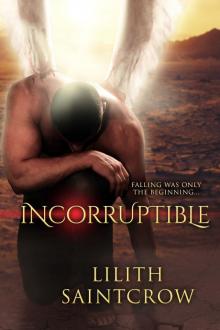 Incorruptible
Incorruptible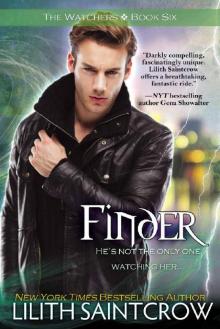 Finder (The Watchers Book 6)
Finder (The Watchers Book 6) Steelflower in Snow
Steelflower in Snow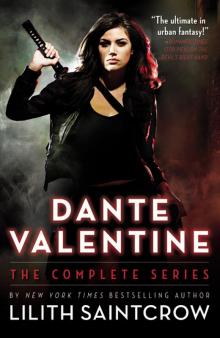 Dante Valentine
Dante Valentine Redemption Alley-Jill Kismet 3
Redemption Alley-Jill Kismet 3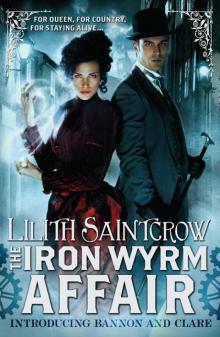 The Iron Wyrm Affair
The Iron Wyrm Affair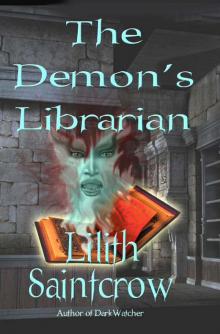 The Demon's Librarian
The Demon's Librarian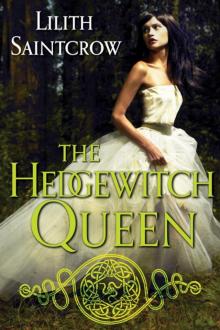 The Hedgewitch Queen
The Hedgewitch Queen Redemption Alley
Redemption Alley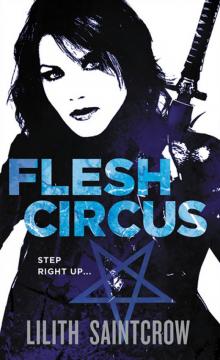 Flesh Circus
Flesh Circus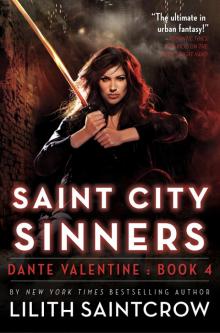 Saint City Sinners
Saint City Sinners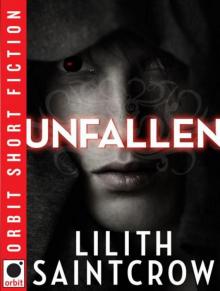 Unfallen
Unfallen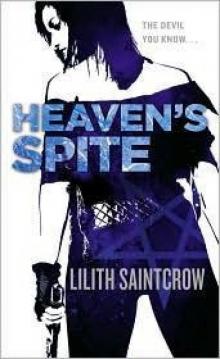 Heaven’s Spite
Heaven’s Spite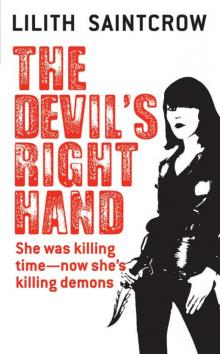 The Devil s Right Hand
The Devil s Right Hand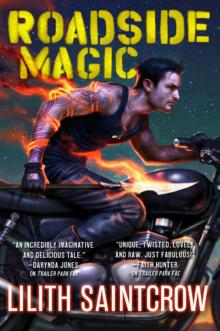 Roadside Magic
Roadside Magic Steelflower at Sea
Steelflower at Sea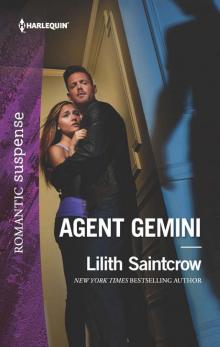 Agent Gemini
Agent Gemini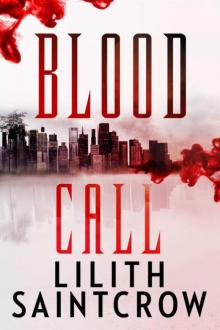 Blood Call
Blood Call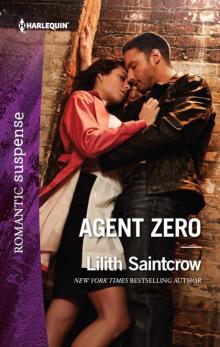 Agent Zero
Agent Zero In The Ruins
In The Ruins Atlanta Bound
Atlanta Bound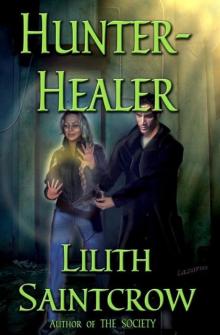 Hunter, Healer
Hunter, Healer Hunter's Prayer
Hunter's Prayer Roadtrip Z_Season 2_In The Ruins
Roadtrip Z_Season 2_In The Ruins Wasteland King
Wasteland King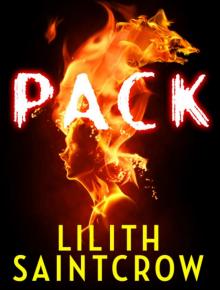 Pack
Pack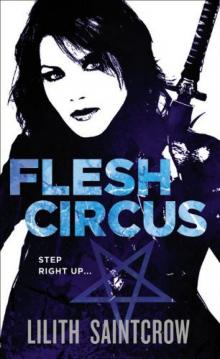 Flesh Circus - 4
Flesh Circus - 4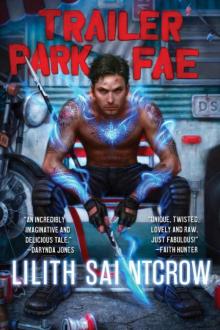 Trailer Park Fae
Trailer Park Fae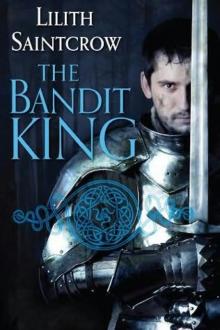 The Bandit King h-2
The Bandit King h-2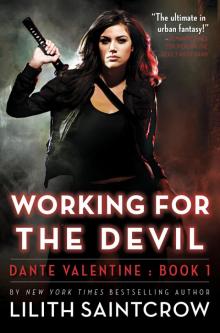 Working for the Devil
Working for the Devil Pocalypse Road
Pocalypse Road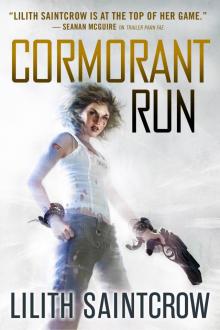 Cormorant Run
Cormorant Run Dante Valentine Book 5 - To Hell and Back
Dante Valentine Book 5 - To Hell and Back Desires, Known
Desires, Known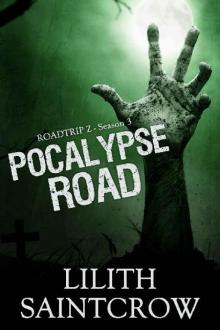 Roadtrip Z (Season 3): Pocalypse Road
Roadtrip Z (Season 3): Pocalypse Road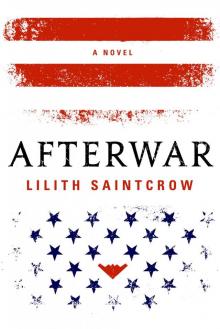 Afterwar
Afterwar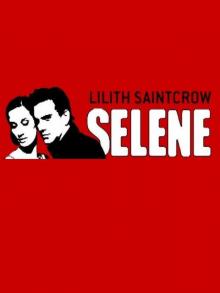 Selene
Selene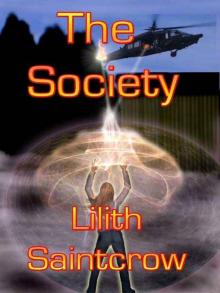 The Society
The Society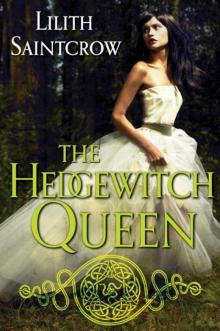 The Hedgewitch Queen h-1
The Hedgewitch Queen h-1 Night Shift jk-1
Night Shift jk-1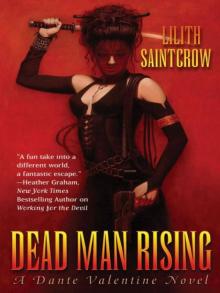 Dead Man Rising
Dead Man Rising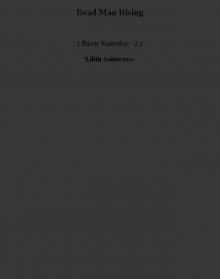 Dead Man Rising dv-2
Dead Man Rising dv-2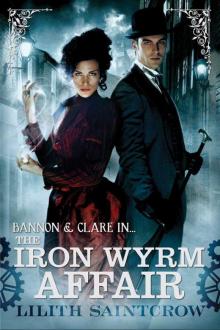 The Iron Wyrm Affair: Bannon and Clare: Book 1
The Iron Wyrm Affair: Bannon and Clare: Book 1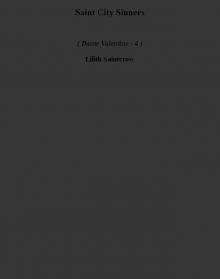 Saint City Sinners dv-4
Saint City Sinners dv-4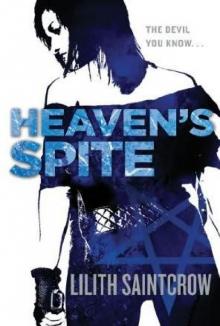 Heaven's Spite jk-5
Heaven's Spite jk-5 Beast of Wonder
Beast of Wonder Hunter's Prayer jk-2
Hunter's Prayer jk-2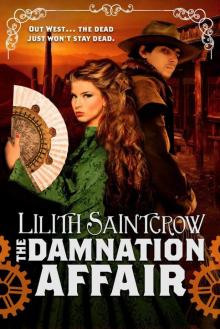 The Damnation Affair
The Damnation Affair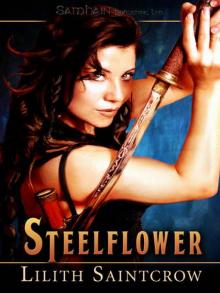 Steelflower
Steelflower The Red Plague Affair: Bannon & Clare: Book Two
The Red Plague Affair: Bannon & Clare: Book Two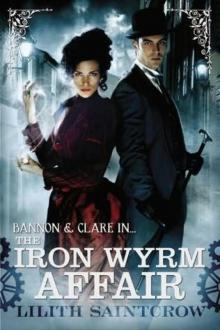 The Iron Wyrm Affair tb&ca-1
The Iron Wyrm Affair tb&ca-1 Flesh Circus jk-4
Flesh Circus jk-4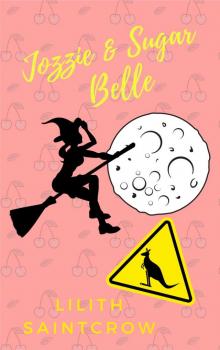 Jozzie & Sugar Belle
Jozzie & Sugar Belle Night Shift
Night Shift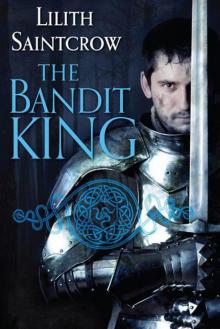 The Bandit King
The Bandit King![Hunter, Healer [Sequel to The Society] Read online](http://i1.bookreadfree.com/i1/04/05/hunter_healer_[sequel_to_the_society]_preview.jpg) Hunter, Healer [Sequel to The Society]
Hunter, Healer [Sequel to The Society]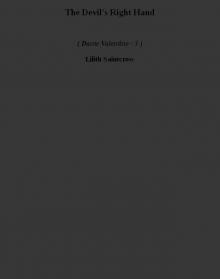 The Devil's Right Hand dv-3
The Devil's Right Hand dv-3 To Hell and Back dv-5
To Hell and Back dv-5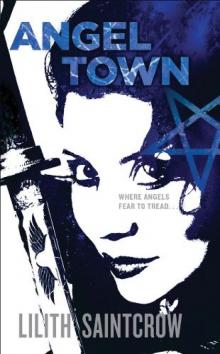 Angel Town
Angel Town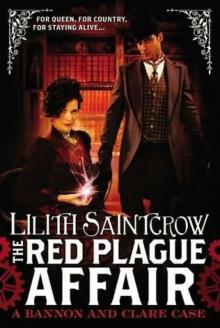 The Red Plague Affair tb&ca-2
The Red Plague Affair tb&ca-2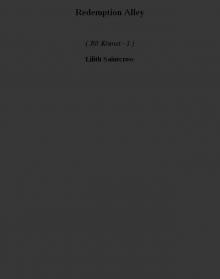 Redemption Alley jk-3
Redemption Alley jk-3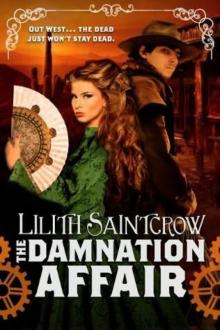 The Damnation Affair (the bannon & clare affairs)
The Damnation Affair (the bannon & clare affairs)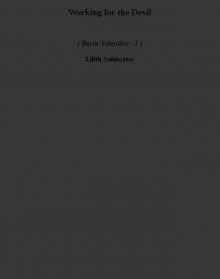 Working for the Devil dv-1
Working for the Devil dv-1